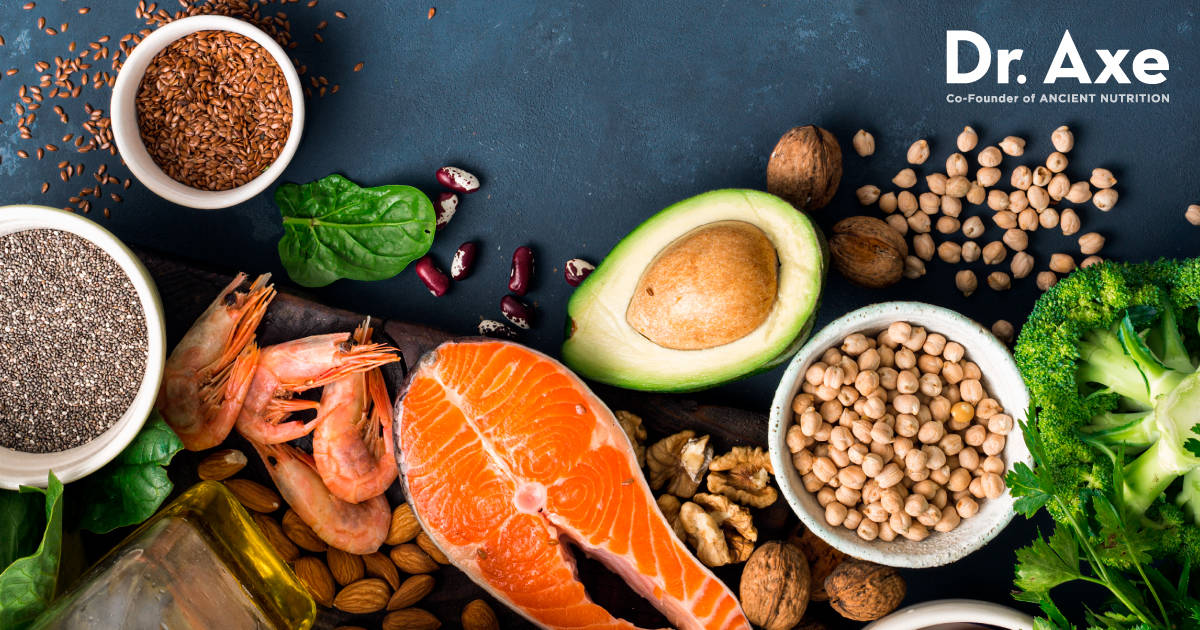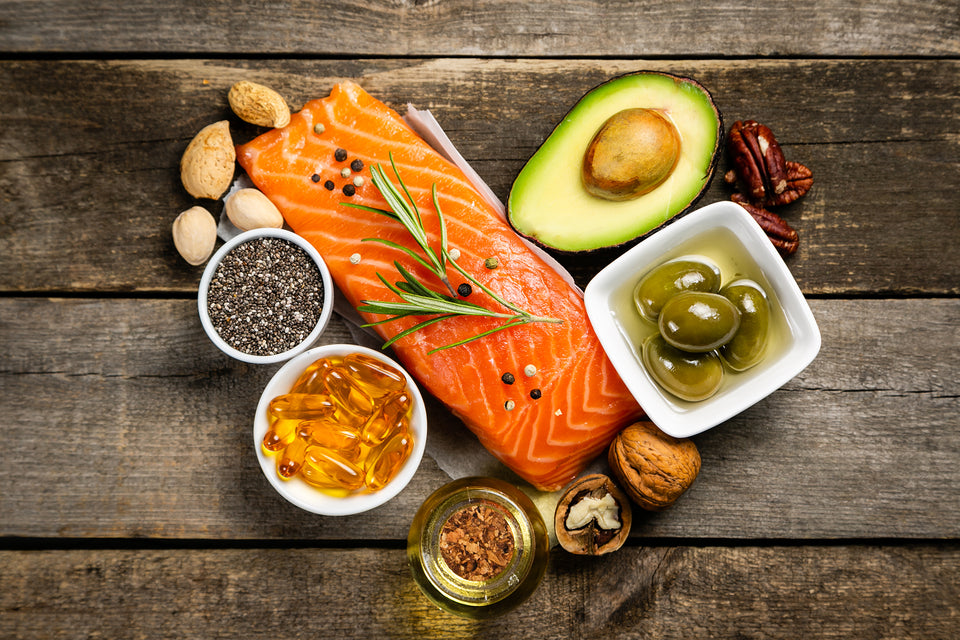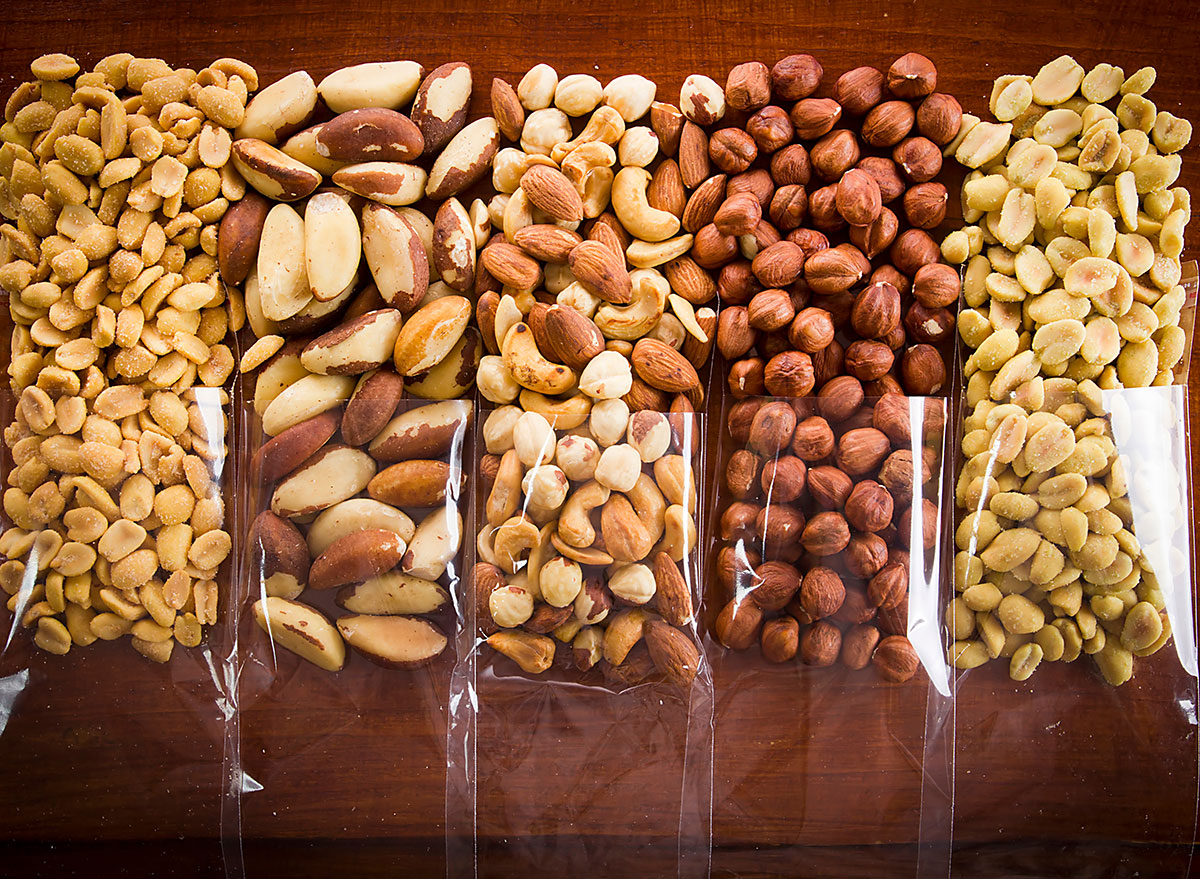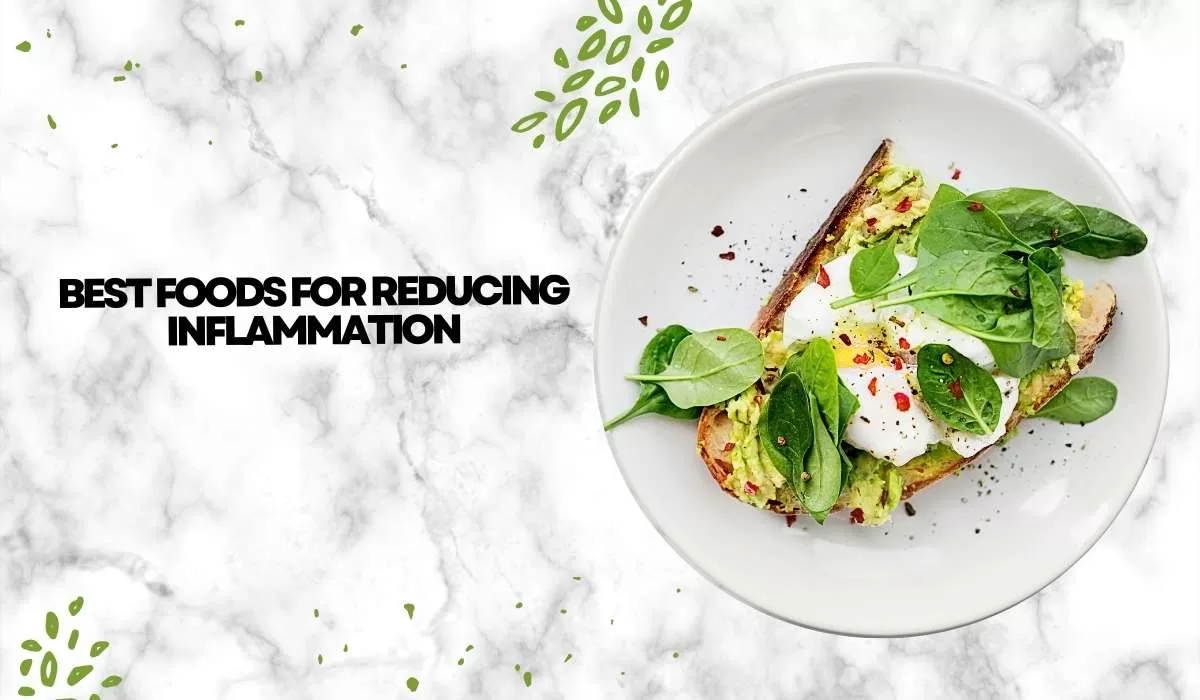Inflammation is a natural response by your body’s immune system to protect against harmful stimuli like pathogens, injuries, or toxins. While acute inflammation is essential for healing, chronic inflammation can lead to various health issues. Understanding how inflammation affects your body is crucial for maintaining overall well-being. Here’s a concise overview of inflammation and its impact on health:
Key Points:
- Acute vs. Chronic Inflammation: Acute inflammation is short-term and beneficial, while chronic inflammation is long-lasting and harmful.
- Health Implications: Chronic inflammation is linked to diseases like heart disease, diabetes, and even cancer.
- Symptoms: Persistent fatigue, joint pain, and digestive issues are common signs of inflammation.
- Lifestyle Factors: Diet plays a significant role in managing inflammation and promoting a healthy immune response.
In the upcoming sections, we will delve into specific anti-inflammatory foods to help combat inflammation and support optimal health.
The role of diet in managing inflammation
After understanding the impact of inflammation on your health, it becomes evident that dietary choices play a crucial role in either exacerbating or alleviating inflammation. Your food intake can influence the inflammatory response in your body, making it essential to focus on an anti-inflammatory diet. Here are key points to consider regarding the role of diet in managing inflammation:
Essential Considerations:
- Inflammatory vs. Anti-inflammatory Foods: Consuming a diet rich in anti-inflammatory foods can help reduce chronic inflammation.
- Balanced Nutrition: Incorporating a variety of nutrients from whole foods can support a healthy immune system and reduce inflammation.
- Avoiding Triggers: Limiting intake of processed foods, refined sugars, and unhealthy fats can help regulate inflammation levels.
- Long-Term Impact: Consistently following an anti-inflammatory diet can lead to improved overall health and well-being.
In the subsequent sections, we will explore specific foods known for their anti-inflammatory properties and how they can be easily incorporated into your daily meals for optimal health benefits.
Berries and Cherries
Benefits of berries and cherries in reducing inflammation
Berries and cherries are not only delicious but also pack a powerful punch when it comes to fighting inflammation. These vibrant fruits are rich in antioxidants, particularly flavonoids and anthocyanins, known for their anti-inflammatory properties. Here are some key benefits of including berries and cherries in your diet to combat inflammation:
Powerful Anti-Inflammatory Effects:
- Antioxidant-Rich: Berries and cherries are loaded with antioxidants that help neutralize free radicals and reduce oxidative stress, which is linked to inflammation.
- Reduced Risk of Chronic Diseases: Regular consumption of these fruits is associated with a lower risk of chronic conditions like heart disease and arthritis.
- Anti-Aging Properties: The compounds in berries and cherries may contribute to skin health and slow down aging processes by combating inflammation.
- Improved Cognitive Function: Some studies suggest that the nutrients in these fruits can support brain health and reduce inflammation in the brain.
In the following section, we will explore the nutritional value of berries and cherries, along with creative ways to incorporate them into your daily meals for maximum health benefits.
:max_bytes(150000):strip_icc()/best-anti-inflammatory-foods-to-add-to-your-diet-0223-2000-654e7cad9ab64e57a2bbc6dfbbb8453b.jpg)
Nutritional value and delicious ways to incorporate them into your diet
Berries and cherries are not only flavorful but also offer a host of essential nutrients that can support your overall health. Understanding their nutritional content can help you make informed choices when incorporating them into your diet. Here’s a closer look at the nutritional benefits of these fruits and some fun and delicious ways to enjoy them in your meals:
Nutritional Benefits:
- Vitamins and Minerals: Berries and cherries are rich sources of vitamin C, vitamin K, and various antioxidants that promote immune function and reduce inflammation.
- Fiber Content: These fruits are packed with dietary fiber, which supports digestive health and helps regulate blood sugar levels.
- Low in Calories: Berries and cherries are low-calorie options that can satisfy your sweet cravings without derailing your health goals.
- Hydration: These fruits have high water content, aiding hydration and overall well-being.
In the subsequent section, we will explore creative and delicious recipes to incorporate berries and cherries into your daily meals, making healthy eating a delightful experience.

Fatty Fish and Omega-3 Rich Foods

Importance of fatty fish and omega-3 rich foods in fighting inflammation
In addition to fruits like berries and cherries, incorporating fatty fish and omega-3 rich foods into your diet can significantly contribute to reducing inflammation and improving your overall health. These foods are abundant in essential fatty acids, particularly omega-3s, known for their anti-inflammatory properties. Let’s delve into the crucial role of fatty fish and omega-3 rich foods in combating inflammation:
Key Benefits:
- Omega-3 Fatty Acids: Fatty fish like salmon, mackerel, and sardines are excellent sources of omega-3s, which help reduce inflammation in the body.
- Heart Health: Omega-3s can lower blood pressure and reduce the risk of heart disease by combating inflammation in the cardiovascular system.
- Joint Support: Consuming omega-3 rich foods may alleviate joint pain and stiffness associated with inflammatory conditions like arthritis.
- Brain Function: These fatty acids are essential for brain health and may help reduce inflammation in the brain, potentially enhancing cognitive function.
In the upcoming section, we will explore the best sources of omega-3 rich foods and their numerous health benefits beyond reducing inflammation.

Best sources of omega-3 and their health benefits
When it comes to incorporating omega-3 fatty acids into your diet, certain foods stand out as excellent sources, offering a range of health benefits beyond just fighting inflammation. Including these omega-3 rich foods in your meals can have a profound impact on your overall well-being. Here are some of the best sources of omega-3 and the health benefits they provide:
Top Sources and Benefits:
- Fatty Fish: Salmon, mackerel, and trout are rich in omega-3s, promoting heart health, reducing inflammation, and supporting brain function.
- Flaxseeds: A plant-based source of omega-3s, flaxseeds offer anti-inflammatory properties, aid in digestion, and support cardiovascular health.
- Chia Seeds: These tiny seeds pack a powerful nutritional punch with omega-3s that benefit heart health, promote satiety, and aid in weight management.
- Walnuts: Walnuts provide omega-3 fatty acids that support brain health, reduce inflammation, and contribute to overall cardiovascular wellness.
In the following section, we will delve into the versatility of these omega-3 rich foods and explore creative ways to incorporate them into your daily meals for maximum health benefits.

Leafy Greens and Cruciferous Vegetables

Anti-inflammatory properties of leafy greens and cruciferous vegetables
Leafy greens and cruciferous vegetables are nutritional powerhouses known for their anti-inflammatory benefits. Packed with essential vitamins, minerals, and phytochemicals, these vegetables can help combat inflammation and promote overall health. Including a variety of leafy greens and cruciferous vegetables in your diet is a smart choice for supporting a healthy immune system. Here are the key points highlighting the anti-inflammatory properties of these nutrient-rich foods:
Benefits and Features:
- Rich in Antioxidants: Leafy greens and cruciferous veggies contain antioxidants that help reduce inflammation and protect cells from damage.
- High Fiber Content: These vegetables are excellent sources of fiber, promoting digestive health and aiding in inflammation reduction.
- Vitamins and Minerals: Packed with vitamins A, C, and K, as well as minerals like calcium and magnesium, they support immune function and combat inflammation.
- Detoxification Support: Cruciferous vegetables like broccoli and Brussels sprouts aid in detoxification processes, reducing inflammation in the body.
In the following section, we will explore creative and delicious ways to incorporate these leafy greens and cruciferous vegetables into your meals to reap the maximum anti-inflammatory benefits they offer.
:max_bytes(150000):strip_icc()/smoky-sheet-pan-salmon-and-potatoes-recipes-0222DIN-89489d9b17ed4f25b2d03b2c5adafaa9.jpg)
Easy recipes and creative ways to enjoy these superfoods
Incorporating leafy greens and cruciferous vegetables into your meals doesn’t have to be bland or boring. With a dash of creativity and simple recipes, you can turn these superfoods into delicious and satisfying dishes that pack a nutritional punch. Experimenting with various cooking methods and flavor combinations can elevate your meals while reaping the numerous health benefits these vegetables offer. Here are some easy recipes and creative ways to enjoy leafy greens and cruciferous vegetables in your daily diet:
Recipe Ideas:
- Sautéed Kale with Garlic and Lemon: Add a burst of flavor to nutrient-rich kale by sautéing it with garlic and a squeeze of lemon juice.
- Roasted Brussels Sprouts with Balsamic Glaze: Roasting Brussels sprouts until crispy and drizzling them with balsamic glaze creates a sweet and savory side dish.
- Spinach and Feta Stuffed Mushrooms: Combine spinach and feta cheese to create a flavorful filling for stuffed mushrooms, perfect for a healthy appetizer or snack.
- Broccoli and Quinoa Salad: Mix cooked quinoa with blanched broccoli florets, cherry tomatoes, and a light vinaigrette for a refreshing and nutritious salad option.
Get creative in the kitchen and explore various ways to incorporate these superfoods into your meals for a delicious and nourishing culinary experience.

Nuts and Seeds

Nutritional benefits of nuts and seeds for reducing inflammation
Nuts and seeds are not only convenient and delicious snacks but also offer a wide array of nutrients that can help reduce inflammation in the body. These crunchy powerhouses are packed with essential fatty acids, antioxidants, and fiber, making them valuable additions to an anti-inflammatory diet. Including a variety of nuts and seeds in your meals can provide numerous health benefits beyond just fighting inflammation. Here’s a closer look at the nutritional benefits of nuts and seeds for reducing inflammation:
Key Nutrients:
- Healthy Fats: Nuts and seeds are rich in omega-3 and omega-6 fatty acids that help balance inflammation in the body.
- Antioxidants: These power-packed snacks contain antioxidants like vitamin E and selenium, which combat oxidative stress and inflammation.
- Fiber: The fiber content in nuts and seeds supports gut health, regulates blood sugar levels, and contributes to reducing inflammation.
- Protein: Nuts and seeds provide plant-based protein, essential for muscle repair and overall immune function.
In the following section, we will explore healthy snacking options and exciting recipes featuring nuts and seeds to help you incorporate these nutrient-dense foods into your daily diet for optimal health benefits.

